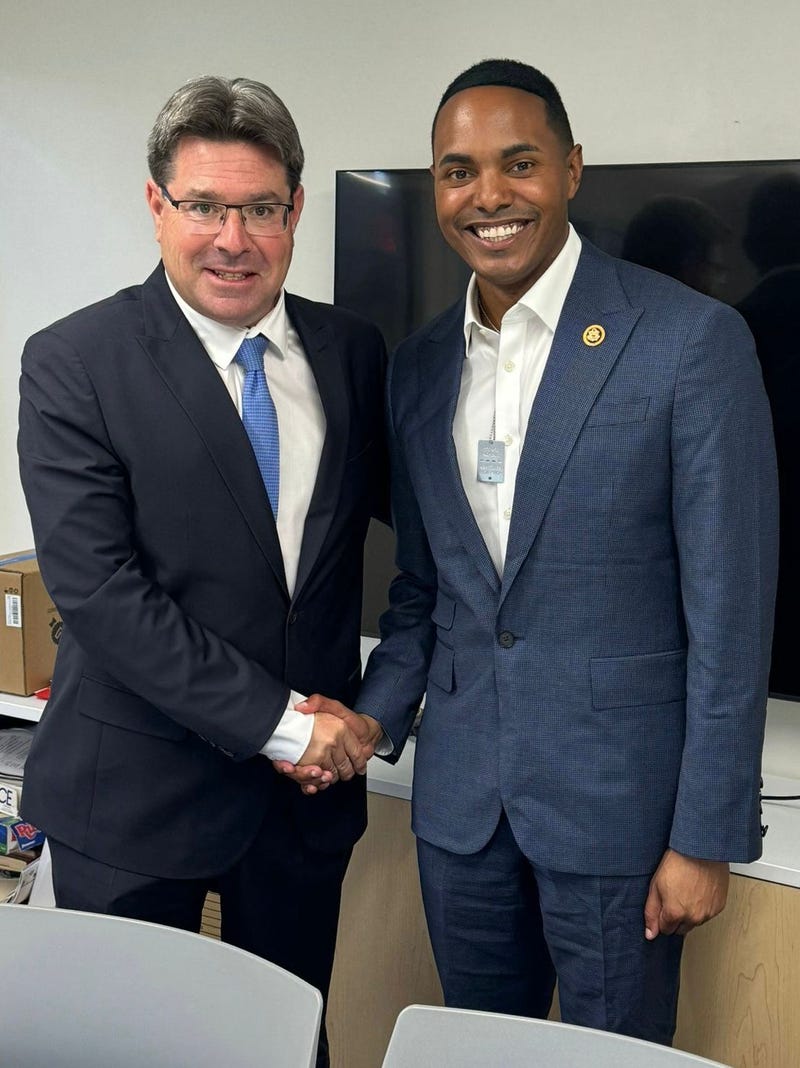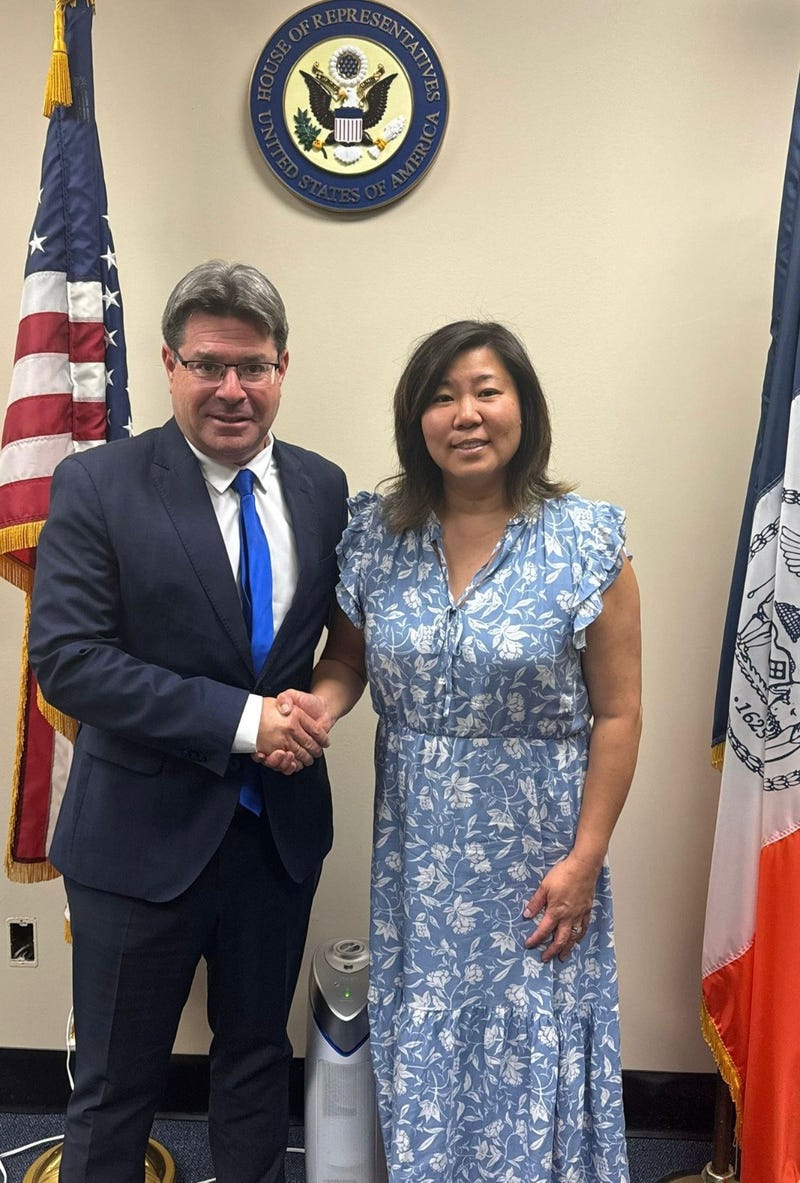
NEW YORK (1010 WINS/WCBS 880) -- Prior to Ofir Akunis arriving in New York City May 1 to begin his posting as the State of Israel's consul general, he was well aware of the spike in anti-Jewish hate crimes here since Hamas' Oct. 7 terror attack, but that doesn't mean he was prepared for it.
"I will tell you, I'll be very honest: it was a bad surprise for me, even though I knew before the cabinet appointed me, that the city is changing," Akunis, a former Likud member in his first diplomatic posting, told WCBS 880.
Akunis, a father-of-two, arrived at the height of the campus protests and encampments, many of which were a mix of anti-Israel, anti-Zionist and anti-Jewish sentiments -- and not peaceful. Some Jewish students and/or those expressing support for Israel were harassed both verbally and physically, promoting Congressional hearings on the issue. There were, of course, peaceful protesters, advocating for the Palestinian people.
The Tel Aviv native, 51, explained, "I came here, it was May 1, the very first meeting in the consulate, I asked the employees, the other diplomats to come to an urgent meeting about the campuses, the universities, and it was during the day of the attacks against Jewish students at Columbia, NYU, New School, and on the West Coast, at UCLA. This is unacceptable.
Akunis -- whose jurisdiction, aside from New York, includes New Jersey, Ohio, Pennsylvania and Delaware -- added, "and by the way, I will not say to anybody not to say his opinions. I'm a Democrat. I believe that democracy is the most important formula to our nations, to Americans, to Europeans, to the British and Israel, of course -- but the freedom of speech is not the freedom of hate."
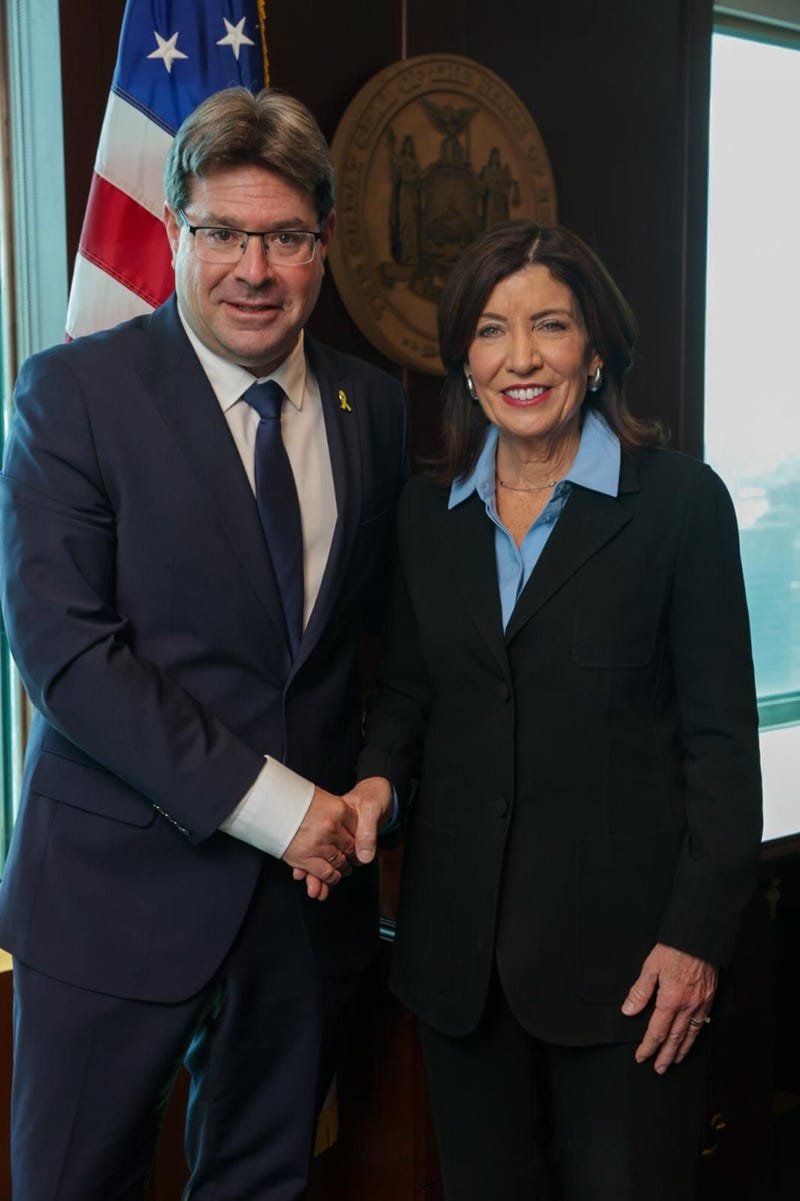

Despite the frightening scene that unfolded at Columbia University, Manhattan District Attorney Alvin Bragg dropped most of the 46 cases against the demonstrators charged in the April 30 siege of Hamilton Hall at the once-prestigious school, because he claimed prosecutors has little proof that the cases would stand up in trial, due in part to the wearing of masks. Dozens of people subsequently protested outside Bragg's office admonishing the move.
"It was a mistake because he can see the pictures, he can hear the voices," Akunis said of Bragg's decision. "That was a big mistake and I'm very sorry about it."
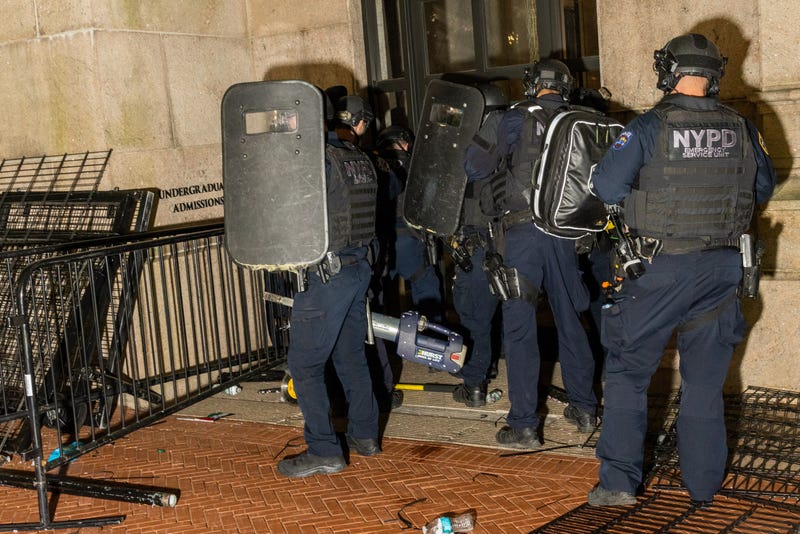
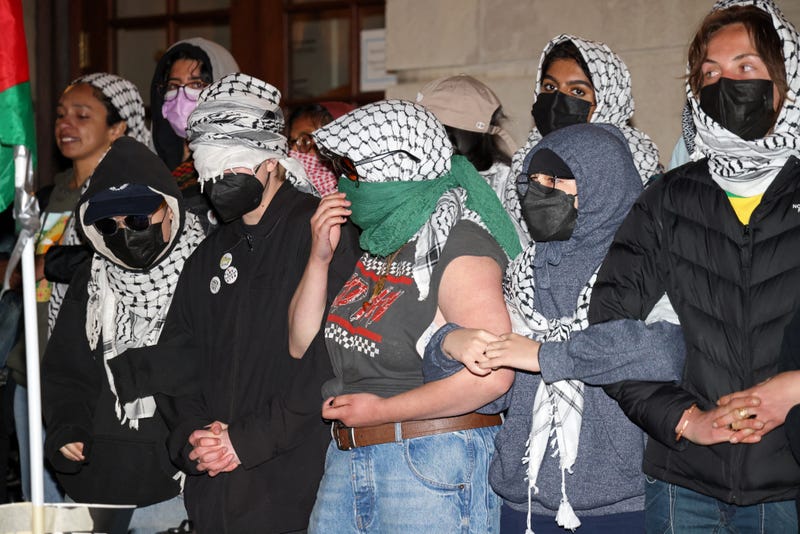
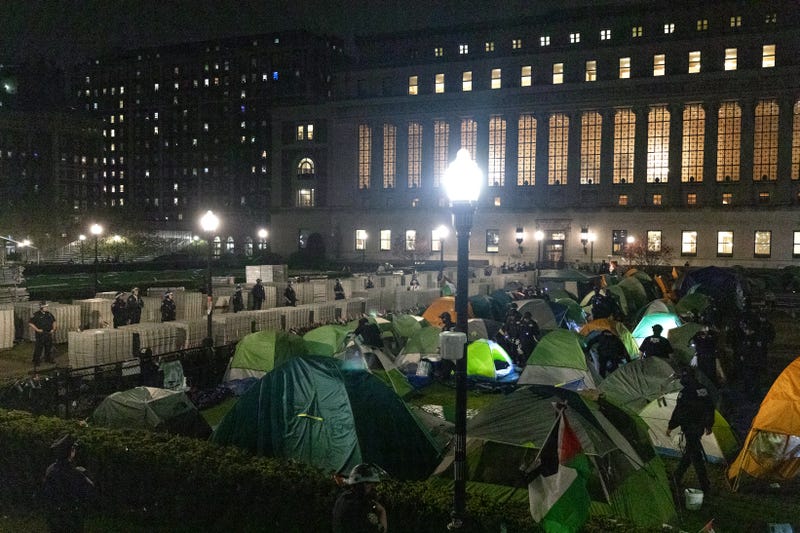
Akunis is dumbfounded by the presence of Hamas and Hezbollah flags -- both U.S.-designated terror groups -- on the streets of New York, coupled with chants of "death to America!" and the burning of U.S. flags.
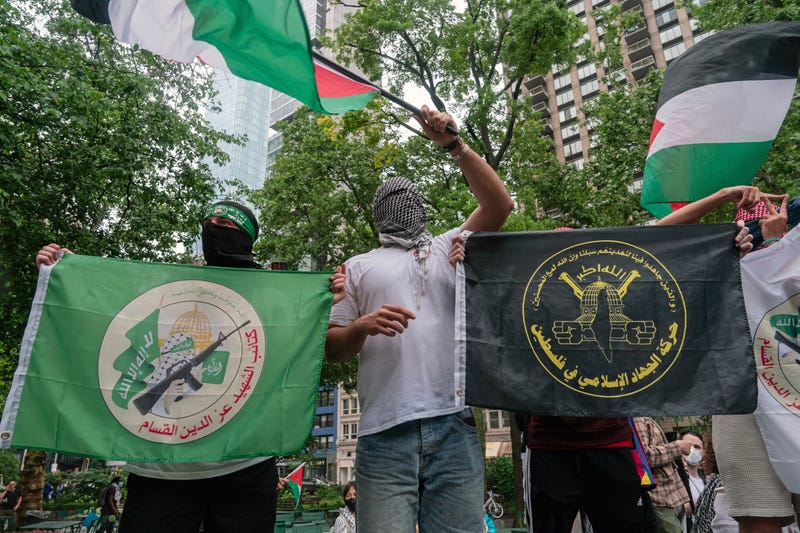
Anti-Israel protesters took to midtown, outside the Israeli consulate, to wave Hezbollah flags, and Hezbollah and Hamas flags were waved by protesters outside the lower Manhattan exhibition honoring the victims murdered by Hamas at the Nova music festival on Oct. 7.
"This is unacceptable," he said. "If someone wants to protest against Israel, against Europe, against me, against anybody, he can do it. But this is not the way."

Akunis -- a former Likud member whose past positions include Minister of Science and Technology; Minister of Labor, Social Affairs and Social Services; and Minister of Regional Cooperation -- pointed to the overwhelming number of protesters wearing masks, a move that does not appear to be based on medical facts since the CDC declared the COVID-19 public health emergency over as of May 11, 2023.
"There's a lot of violence," he said. "They are using their masks to hide themselves because they are spreading a lot of hate. We saw what happened on the subway car."
Akunis is referring to the June 10 incident when Anas Saleh of Staten Island -- he turned himself into the NYPD on June 26 after he was wanted for coercion -- was on a lower Manhattan subway train with a mask- and keffiyah-wearing mob, when he demanded, "Raise your hands if you're a Zionist! This is your chance to get out! OK, no Zionists? We're good!"
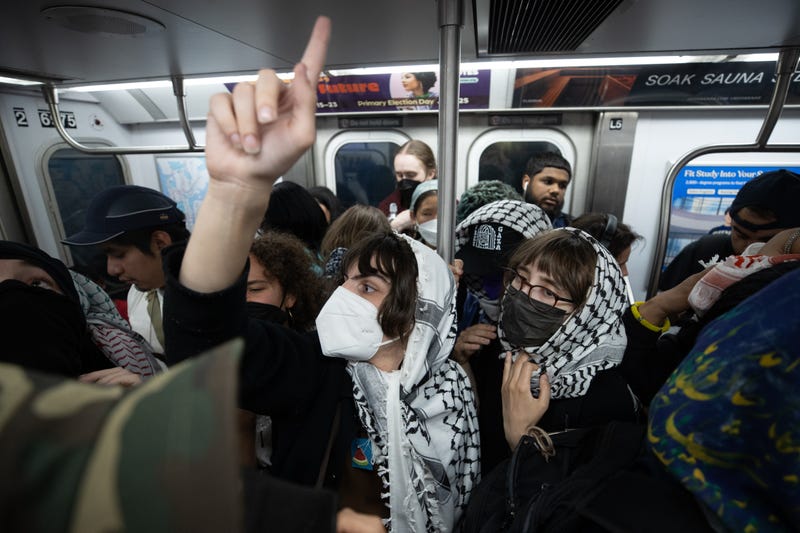
The group, according to ABC News, had just returned from a protest where flags for U.S.-designated terror groups Hamas and Hezbollah were waved, and "long live October 7" was chanted. More than 1,200 people in southern Israel were massacred on Oct. 7 and about 240 people abducted by Hamas and its accomplices to Gaza. One hundred and twenty hostages remain there.
Identifying Saleh -- as well as the others in the group -- proved difficult given many covered their faces.
This led many local lawmakers, community leaders and Gov. Kathy Hochul to say the mask ban, which had been in effect before COVID-19, needed to be brought back or at least revisited. Akunis does not want to wade in local law-making waters but implied something needs to be done on that front.
"Laws are internal issues ... and I don't want to be part of the domestic, let's say arguments, here in the United States," he said. "But I think that if you want the city and the future of the American nation, you must see the events, and think what to do that it will not continue."
And looking ahead to the new school year in September, Akunis, said it'll be a "huge, huge test to the universities, the campuses, the police and the American law."
